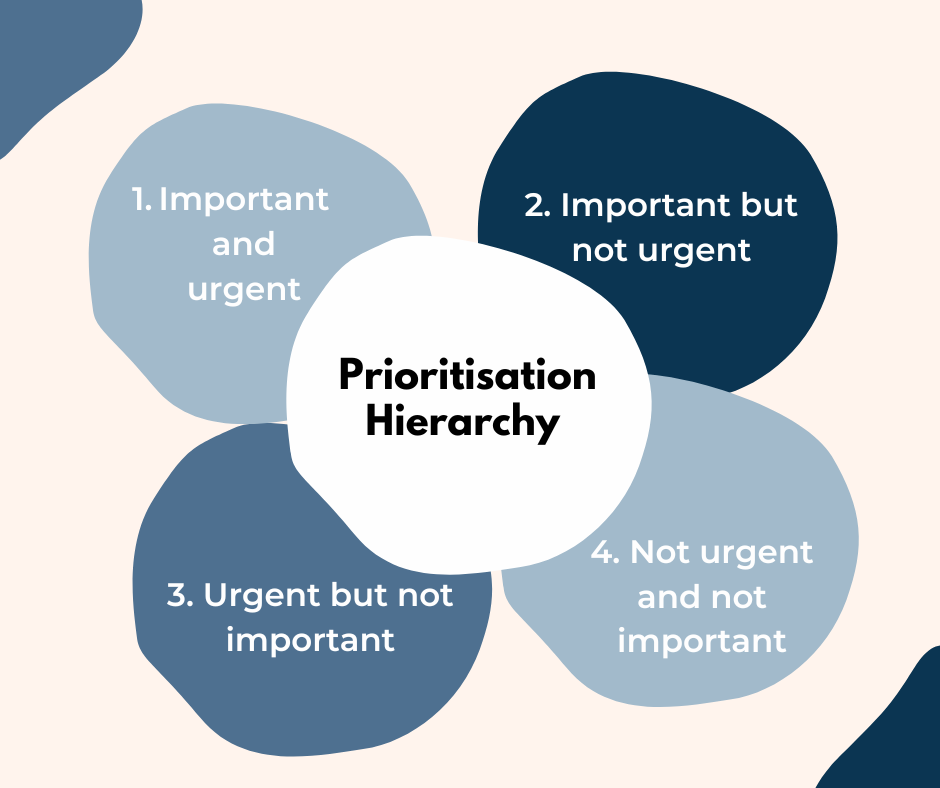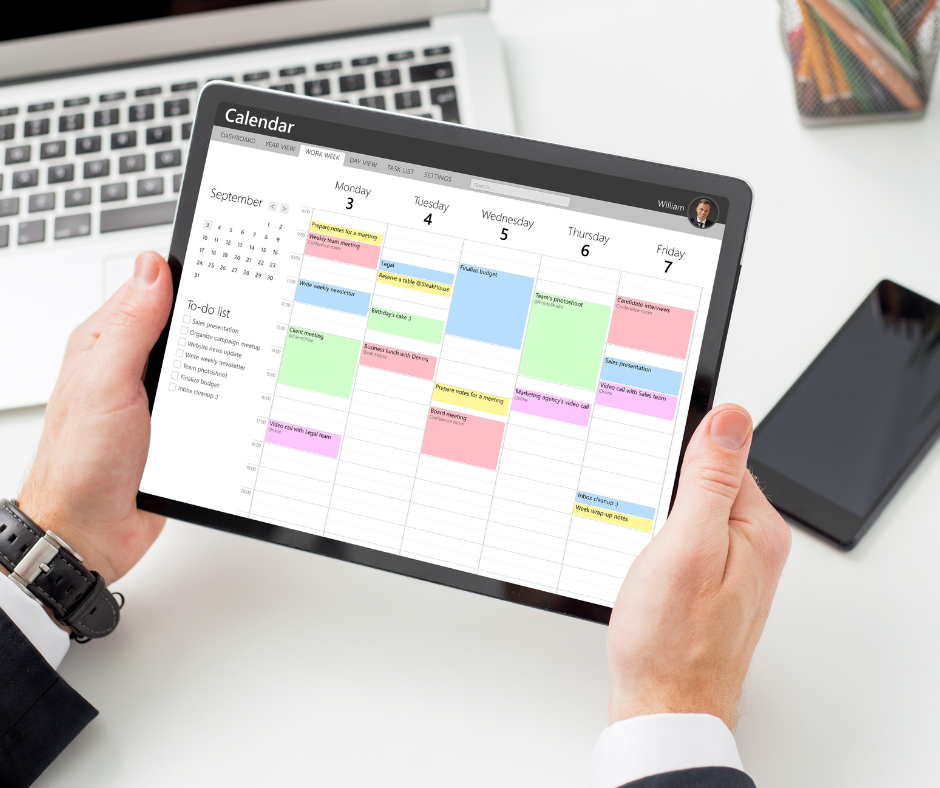Effective time management in the workplace can lead to reduced stress and procrastination, and increased productivity and confidence – among many other benefits!
Keep reading to learn out top time management tips.
1. Carry out a time audit
Figure out what you spend your time on by carrying out a time audit.
Assess how long each task takes you, and if there are factors that are slowing it down.
Use this data to inform your goal-setting and scheduling.
2. Set your priorities
 Prioritise tasks based on importance and urgency:
Prioritise tasks based on importance and urgency:
- Important and urgent: Do these tasks immediately
- Important but not urgent: Decide when to do these tasks
- Urgent but not important: Delegate these tasks if possible
- Not urgent and not important: Set these tasks aside to do later
3. Create a personalised schedule
Create a personalised schedule for your day, or even your week – allocate realistic blocks of time for different tasks to help you to meet your deadlines.
4. Hone your to-do list
 Instead of starting your morning figuring out your plan for the day, take a few minutes before the end of each workday to write out the following day’s to-do list.
Instead of starting your morning figuring out your plan for the day, take a few minutes before the end of each workday to write out the following day’s to-do list.
Plans may change as the day goes on, but having a solid list to work through will provide you with structure.
5. Group similar tasks together
Group tasks together logically, either by objective or by function, to reduce the amount of times you need to shift your mindset throughout the day.
Task-switching and multi-tasking can have detrimental effects on productivity, resulting in a lower level quality of work and a higher toll on our mental energy.
6. Plan your calendar
 For effective long-term time management, plan out your calendar in advance. Consider:
For effective long-term time management, plan out your calendar in advance. Consider:
- Setting reoccurring events for regular tasks
- Recording deadlines for projects
- Identifying specific days best for certain tasks
- Blocking out time for tasks to prevent interruptions
7. Keep a clear workspace
Keeping both your physical and digital workspaces neat can help to reduce clutter and improve decision-making, allowing you to focus on the essentials.
Clear papers from your desk, filing them or shredding them depending on if they are still required. Organise your computer’s filing system, ensuring files are named logically and your system is easy to navigate.
8. Take breaks between tasks
 Avoid burning out at work by taking breaks between tasks, allowing you to clear your head and refresh yourself before tackling your next job. Use the time to grab a drink, have a snack, or simply chat to a colleague.
Avoid burning out at work by taking breaks between tasks, allowing you to clear your head and refresh yourself before tackling your next job. Use the time to grab a drink, have a snack, or simply chat to a colleague.
9. Set clear goals
Use the SMART method to set goals that are:
- Specific
- Measurable
- Attainable
- Relevant
- Timely
10. Start with the most difficult task first
When you have a tricky task looming over you, it’s easy to allow yourself to procrastinate or be distracted in order to avoid facing a difficult job.
The Eat That Frog productivity method devised by leadership expert Brian Tracy suggests that you should complete the biggest, most difficult and most important task first – ‘eating the frog’, before you move on to the rest of your tasks for the day.

Time Management and Unconscious Bias training courses are essential tools in improving workplace planning and efficiency. Make sure you don’t miss out on our 10% off deal on these courses, available until the end of July. Simply enter the code ‘planning10’ at checkout to save!
Read more Top 10 Tips blogs here.
To keep up to date with the latest health & safety news and advice, follow us on social media:
